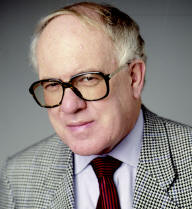The Editor's View August 05
Magazine

John Jenkins' monthly column from Writers' Forum magazine
Star-studded line-up at Cheltenham . . . high quality entries at Winchester . . . are media studies more important than Eng.Lit?
TIME was when would-be authors put down their pens after winter and did not take them up again until September when writing classes re-started in the autumn. Not so. Summer is now a busy time with conferences, workshops, festivals and holidays across the country.
We enjoy meeting old friends and making new ones at Winchester, Caerleon and Durham and supporting other, minor events.
On the big stage, Cheltenham is gearing up for October with a fascinating battery of big names.
This year the line-up will include: Alan Bennett, David Attenborough, Mark Haddon, Stephen Fry, Rory Bremner, Judi Dench, Prunella Scales and many others.
There’s always a theme about Cheltenham and this year it looks at freedom – cultural, artistic and political.
From the abstract it dips down into the state of democracy today and the limits of personal freedom. Much to discuss.
One thing puzzled me: a keynote debate entitled – Can Guantanamo be justified? I would have thought that was purely rhetorical. Does anybody but Bush and Rumsfeld think it is still justified?
The festival will run from October 7-16 and more details will appear in the next issue of Writers’ Forum.
* * *
ONCE more we sponsored a short story competition at Winchester Writers Conference where judges are required to give reasons and advice at the prize-giving.
Any judge for a writing competition, or editor, consciously asks two questions when reading a submission:
a Can the author write?
b Has he something worth saying, or entertaining or informative?
If the answer to both of these questions, is no, it’s one more for the slush pile.
If the answer is YES to one of the questions you read on in hope.
Judges are looking for a spark of originality. Something different. A memorable phrase. A challenging idea.
Of course we look at the nuts and bolts of the entry. In a short story every word must count so we check the opening. Does it grab you? I mean really grab you.
We are told that nowadays good stories are character driven, as if that was something new discovered by the University of East Anglia. What was Don Quixote all about? Or Sherlock Holmes?
So are the characters memorable? Is the dialogue crisp? Could the beginning and ending of the story be polished?
This year the entries were much better than usual. In fact the first three were exceptional.
First was Miriam Burke with We Will Rock You.
A really well crafted story. It was like watching a slow fuse burn. The writing had a hypnotic quality. It didn’t fit all the rules but really good stories seldom do. Surely it couldn’t be just another everyday story of middle-class folk. .
Yes it was, but with a finale of thunderclap proportions. It resonated long after it had been read.
Did I ask for something different? Robert Ireland (second) provided it with A Fine Sunset. This was a hugely ambitious story which required the reader to suspend belief – or reinforce belief as the gospel unfolded.
It took courage to tackle this particular theme – a call from God to one of his flock, but it worked. Ambitious should have its reward.
Theresa Wood put in several good entries and every one was worth reading. However, the best was Women that Heal which came third.
There was also a long list of highly commended.
If you want to know more about how to improve your short stories re-read Lazette Gifford in the July issue of Writers’ Forum. We ran the feature just because I thought it was one of the best I had read on the subject.
In particular I liked her self-imposed exercise:
To write the first line of a short story every day for three months. When you have finished go back and write the first 100 words. Then work on the best ones.
That, as my old Dad used to say, is worth guineas not pounds.
* * *
IF YOU think the youth of today knows little about the English language, that examination standards are dropping and that the Government drive to raise the number of graduates to 30 per cent of the population is a strange idea, you are probably very old. Perhaps over 30.
A recent headline in the Times Educational Supplement which urges schools to ditch poetry for pop videos would have upset "Disgusted of Tunbridge Wells." If this had appeared in a mainstream paper an indignant letter would have followed.
Like all headlines it gives the truth – but not the whole truth. I quote:
Thousands of youngsters are switching from studying novels and poetry in English to analysing Hollywood films, assessing racial stereotypes in the music industry and making pop videos in media studies.
The Qualifications and Curriculum Authority is seriously considering whether or not to urge more schools to follow this trend.
On the other side of the fence is Alan Smithers, professor of education at Buckingham University. He attacks media studies, which has attracted a 20 per cent increase in GCSEs in the past year, as a soft option.
Gill Clayton, head of Great Torrington community school in Devon says that boys who do not read "get something from media studies they did not get from literature." That, dear Gill, is the point.
I have nothing against media studies, but why not as well as Eng. Lit – not instead of it?
John Jenkins, Publisher, Writers' Forum
Read the article about setting up WritersServices which was originally published in Writers' Forum magazine.
© Writers International Ltd 2005. Reproduced from the December-Januray edition of Writers' Forum magazine by kind permission of the editor.
